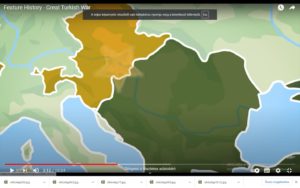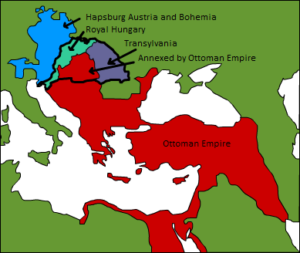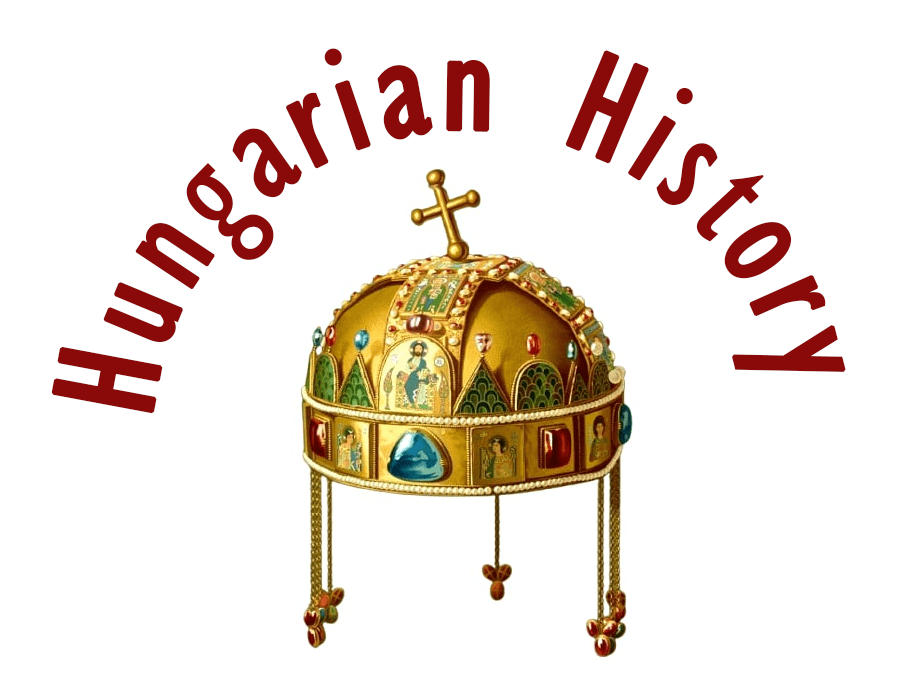My Report on Spreading Hungarian History between 2016 and 2025
Spreading Hungarian history in English on Facebook: A report summarizing my work over the past nine years (2016-2024).

Foreword
Nowadays, most people (74% of Americans, to be precise) use Facebook to get information on a wide variety of topics, ranging from history and entertainment to shopping and politics. I write most of my posts on this platform. Given this trend, it is important to consider Facebook’s role in spreading information and how it impacts people’s opinions in the new millennium.

In 2013, there were 1.7 million Hungarians living in the United States alone, and globally, there are four million people with Hungarian ancestry. Popularizing Hungarian history can assist many of them in enhancing their sense of identity. Numerous second or third-generation Hungarians wish to discover information about their lineage, often beginning by reading social media posts instead of visiting academic sources.

Many people outside of Hungary have a keen interest in Hungarian history. Everyone needs to have accurate historical knowledge to clear up any misunderstandings between countries in Central Europe. Knowing historical reasons can ease present-day tensions. It’s therefore essential to make basic historical information about Hungary accessible in English. It would also help the image of our country, and on Facebook, we would be able to reach people that we would not be able to reach otherwise.

My Experiences:
I am a teacher and cultural event organizer from Budapest, Hungary, who has traveled extensively in Eastern Europe since the 1980s and lived in the U.S. in the early 1990s. I have a passion for castles, reenacting, and practicing Historical European Martial Arts (HEMA), which drives my interest in sharing history.

I launched the Facebook page „Hungaries 1632” in 2016, which currently (05.05.2025) has over 52,800 followers.
To make it easier to understand, I’ve renamed it to “Hungarian History”. You can find it here:
https://www.facebook.com/hungarianturkishwars/
As a rule, I translate articles by Hungarian historians into English that center around the Hungarian-Ottoman wars period. I verify everything I share or write for accuracy. Currently, my posts reach between 400K and about two million people per month, depending on Facebook bans and restrictions.

I also run two Facebook groups. There are 20,101 members in the first one, while there are 17,109 of us who are discussing Hungarian history in the second group I started not too long time ago. Here is the “Hungarian-Ottoman Wars 1366-1791” FB Group:
https://www.facebook.com/groups/2043764082501630
…and here is the new one, the “Hungarian History Without Borders”:
https://www.facebook.com/groups/487740025630735
It was necessary to create a website in 2019, where I now receive approximately 6,000 to 10,000 monthly visitors. The website serves as a repository for my Facebook posts:
https://www.hungarianottomanwars.com/
Currently, there are descriptions in English for 402 Hungarian castles, alongside numerous articles about Hungarian historical events. However, the aim is to provide English descriptions for all Hungarian castles in the Carpathian Basin. I have added them to Google My Maps, resulting in the most extensive map of Hungarian castles available in English. (It received 306K views.) I plan to include all Hungarian castles on this map in the future. It can be found here:
https://www.hungarianottomanwars.com/castles-and-fortifications-in-the-carpathian-basin-map/
The Reception of my pages:
Let me outline what I have experienced regarding the presence of Hungarian history in English-speaking social media in general since 2016. My pages gained rapid growth because I filled a previously unmet demand in social media. Many people are interested in this topic. Firstly, I want to emphasize the communities of Hungarians living abroad and their non-Hungarian-speaking relatives and friends.
Information regarding Hungarian history in the English-speaking world:
Sadly, there isn’t much information about this subject on Facebook, and what we have encountered isn’t always welcoming or positive. We’ve come across numerous unhappy and counterfeit posts. Let’s start with the posts from countries neighboring Hungary’s borders.

Mostly, our significance is overlooked, but when mentioned, it is often done so in a negative light concerning our history. If our presence in a certain area is acknowledged, then the focus is on the oppressive and tyrannical nature of our past actions. While there are numerous Facebook posts about our castles, little is shared about their Hungarian history. Meanwhile, tales of Vlad Tepes and Dracula inundate Facebook, depicting them as the most prominent figures in anti-Turkish battles.
Nations in Western Europe and Turkey:
Two types of information often appear about us on Facebook in the form of YouTube videos.

The Turkish typically acknowledge Hungary’s endeavors to fend off Ottoman expansion into Europe. However, from their viewpoint, the Ottoman Empire’s conquest was the most favorable outcome for the fragmented Eastern European nations.

On the other hand, if you read about the Ottoman wars in articles written by Western Europeans, you will find Hungary’s role in defending Europe unmentioned or belittled.
I recognized a concerning trend and felt compelled to take action by publishing truthful content on my pages. I am pleased to report that my Facebook page and groups have successfully reshaped these previously discussed attitudes in a positive direction. My international readers and group members have expressed gratitude for the impartial approach to discussing history.
To foster a welcoming environment, I’ve gathered admins from different nations in my first Facebook group, one of them is a Romanian gentleman, and there is also a Slovakian and a Turkish. Through our discussions and collaborative efforts, I have gained several Slovakian, Romanian, Serbian, and Croatian friends. Moreover, I have received assistance from individuals of diverse nationalities.

I share my posts frequently in numerous non-Hungarian Facebook groups. These writings about Hungarian history are valued for their uniqueness and are consistently well-received. My page has been highly recommended as a crucial and informative tool for disseminating Hungarian history, often leading to changes in people’s opinions about Hungary.
Hungarians living outside of Hungary:
Thankfully, the Facebook groups have provided me with immense support through friendly exchanges. I received significant encouragement and love from them, and I’m certain that I would have quit a long time ago if not for their support. This positive energy gave me the strength to work for 4-6 hours every day, researching, writing, translating, and building my pages. I have authored two books on Hungarian history in English over the years, and I deeply appreciate the editing done by Suzanna Lahner King, an American-Hungarian lady.

Despite my efforts to establish connections with different Hungarian associations in the Western world, communication has been lacking. However, there is hope for change as I recently gained more credentials and recognition for my work from the National Fund of Hungary (Nemzeti Kulturális Alap Igazgatósága) in March 2022. With their support, I was able to upgrade my laptop and potentially gain the trust of other Hungarian associations.

The Friends of Hungary Foundation also aided me by organizing a webinar. In regards to other Hungarian internet forums and groups, I was mostly welcomed. Numerous castle enthusiasts graciously provided me with help and access to their photos. Only a few groups treated me with hostility.

You can also read this Hungarian report about my work on Pesti Srácok (27.11.2022):
Summary:
Based on the aforementioned data and observations, I confidently assert that my work represents the sole comprehensive and well-structured source of high-quality content on the history of the Hungarian people within the English-speaking Facebook community.
Regardless of my dedication to continue this work alone, it is simply not possible as the project is exceeding my limits. Therefore, I require assistance, including cooperation and financial support of all kinds.

Finally, I don’t want to miss this chance to promote Hungarian history and culture. Let me draw your attention to “The Heavenly Advocate,” a short story by Kosztolányi Dezső that I translated into English, 101 years after its original publication. I may be the first to do so.
You can find both the Hungarian and the English versions on my page:
Recently, I translated a short novel by Mikszáth Kálmán into English, its title is “Hunyák Pál”. You can read it here:
https://www.hungarianottomanwars.com/dramatized-historical-writings/mikszath-kalman-hunyak-pal/
If you’re interested in supporting my work, please consider these options:
Subscribe to receive updates:
Donate to my work if you can by PayPal, too:
[wpedon id=9140]
If you like my writings, please feel free to support me with a coffee here:
My work was (March 2022) endorsed by the National Fund of Hungary (Nemzeti Kulturális Alap Igazgatósága) http://www.nka.hu



